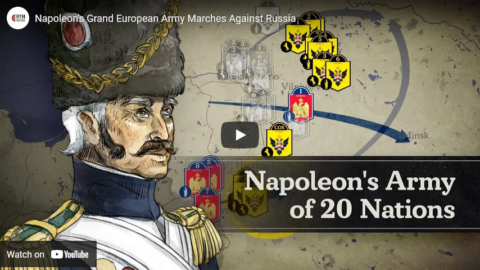I admit I never bothered to read Fukuyama’s The End of History and the Last Man, because I strongly disagreed with the notion — whether advanced by the author or imputed by critics and reviewers — that there ever could be an “end” to history, as long as there are still human beings around. Russia’s latest invasion of Ukraine seems to have also broken the spell for many other westerners, as Jen Gerson points out:
[After recounting the tale of the very first McDonald’s to open in Moscow in 1990] by all accounts, Russians went wild for McDonald’s — as did much of the world — and hundreds have since opened, including one within walking distance of the Red Square. Nothing could better symbolize the end of the bad, old Soviet era than this. A Russia that is peaceful, prosperous and at least a little open to the West was one in which a worker from the Kremlin could grab an American hamburger at lunch.
At least, they once could.
McDonald’s this week was one of several Western companies to announce that it was temporarily halting operations in Russia in response to its invasion of Ukraine. Coca-Cola, Starbucks, KFC, Pizza Hut, Ikea, Shell, BP, Exxon, credit card companies, accounting firms, even airline companies are cutting Russia off, to greater or lesser extents.
I pick on McDonald’s because that chain became so ubiquitous that it has served as a kind of foreign policy truism: For a generation, it was said that no two countries that possessed a McDonald’s had ever gone to war. And so, it was assumed, this would likely remain the case. We’re not talking about skirmishes or civil wars, or local incursions or proxy wars, mind you. But the general theory largely held: as economies globalized and became more interdependent, the costs of one country truly going to war with another would grow so insurmountable that it would soon be unthinkable. Shared prosperity would reduce the need for wars of resources; meanwhile, the more economically interdependent nations became, the more self-defeating and even suicidal the prospect would grow. Economic liberalization and globalization would therefore undoubtedly bolster the long peace. For a generation this has, mostly, held true.
It is this same logic that has underpinned Europe’s growing dependence on Russia’s oil market, for example. After all, no one would risk — well — what Russia is now risking. It is certainly not in that country’s best interest to retreat into a hermit kingdom, to suffer incredible privations, and to revert to a quality of life akin to what its people knew in the ’50s. And for what? Glory? Honour? Territorial expansion? What, does Russia need more land?
This is why the war in Ukraine has caught Westerners off guard, and shook countries that once existed in the Soviet sphere of influence.
History was supposed to be over, when the Western democracies reached their ideal end-state of civilizational evolution. War — true, grand, civilizational war — was far too costly to seriously contemplate. So we allowed our military capacity to atrophy and our strategic dependencies on hostile nations grew.
With hindsight we can see the glaring flaw in the logic adopted by some of the world’s most powerful people. Those wingnuts and lunatics who warned about the danger of making ourselves more dependent on Putin proved correct. Note how quickly Canada’s safe, reliable, democratic oil supply is enjoying a rebrand. Shared prosperity is no panacea to war.








